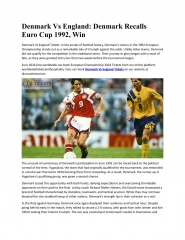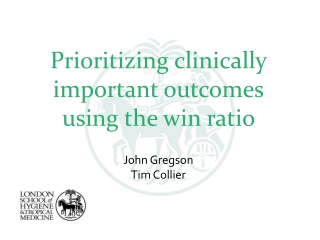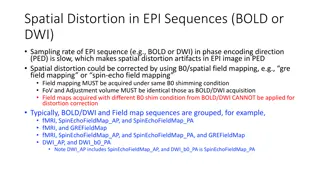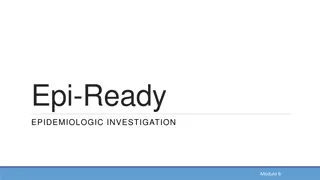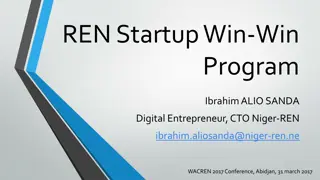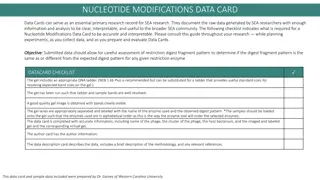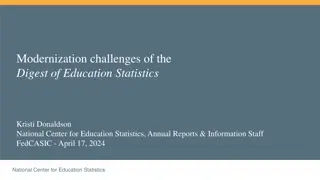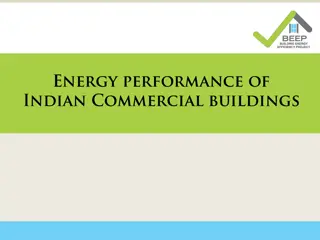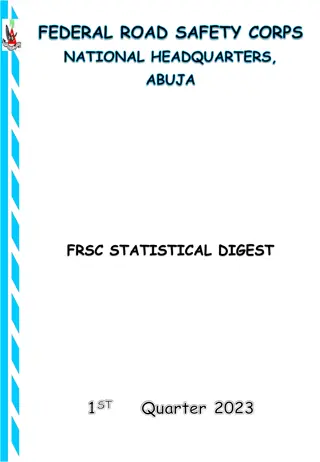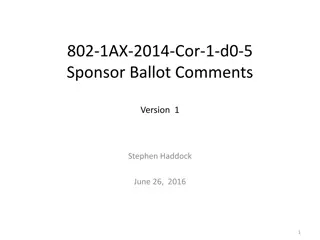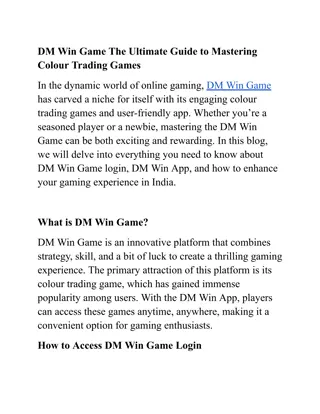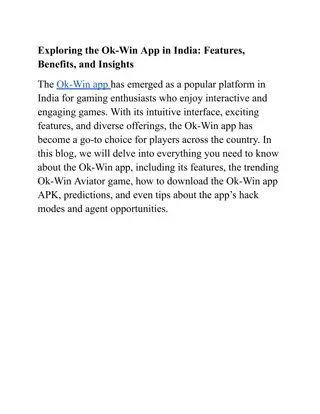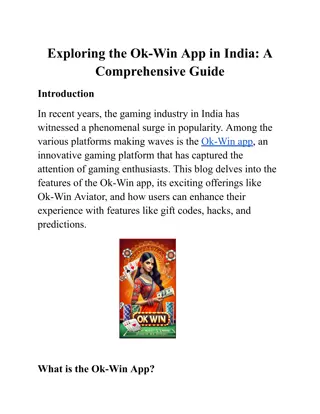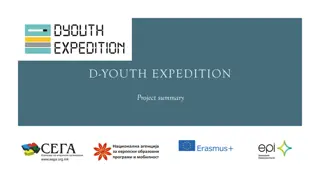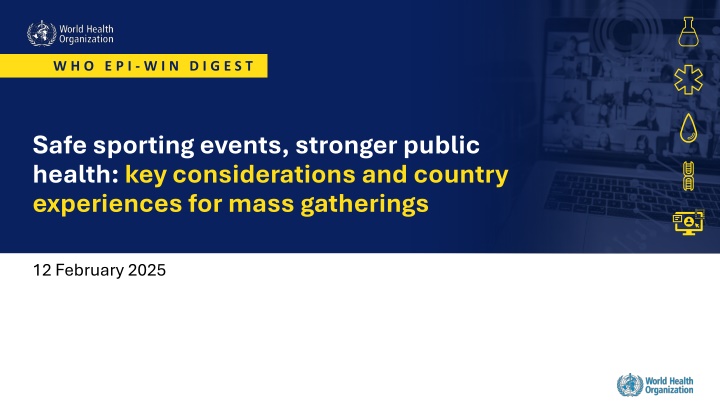
Key Considerations for Safe Sporting Events and Public Health at Mass Gatherings
Explore a comprehensive guide on the role of the WHO and key considerations for ensuring safe sporting events and public health at mass gatherings. Learn about risk management strategies, the importance of health assessments, and the WHO's support for event organizers and host countries. Discover insights on mass gathering definitions, potential health impacts, and a risk-based approach for effective event planning and response. Access valuable resources and tools for managing mass gatherings effectively.
Uploaded on | 1 Views
Download Presentation

Please find below an Image/Link to download the presentation.
The content on the website is provided AS IS for your information and personal use only. It may not be sold, licensed, or shared on other websites without obtaining consent from the author. If you encounter any issues during the download, it is possible that the publisher has removed the file from their server.
You are allowed to download the files provided on this website for personal or commercial use, subject to the condition that they are used lawfully. All files are the property of their respective owners.
The content on the website is provided AS IS for your information and personal use only. It may not be sold, licensed, or shared on other websites without obtaining consent from the author.
E N D
Presentation Transcript
W H O E P I - W I N D I G E S T Safe sporting events, stronger public health: key considerations and country experiences for mass gatherings 12 February 2025 W H O E P I - W I N D I G E S T
WHO Role on Mass Gatherings WHO s key role in provision of technical guidance and support to Member States and Event organizers on MG events WHO does not have the mandate to enforce any action with regard to a mass gathering (modification, postponement, cancellation, etc.) or to authorize that it may proceed. Strategic risk assessment throughout the cycle of event for planning and operations, including the identification of hazards, assessment of their likelihood of occurring, and their potential impact Why mass gathering health matters W H O E P I - W I N D I G E S T
What Are Mass Gatherings? Events characterized by large concentration of people for a defined period of time Potential to strain the planning and response resources of the host nation or defined community Potential health impact: -- amplification ofthe transmission of the disease -- potentially disrupt the host country s response capacity No universal threshold (in terms of the number of attendees) for mass gatherings W H O E P I - W I N D I G E S T
A risk-based approach for mass gathering health risk management Risk evaluation, which aims at identifying and quantifying the baseline risks associated with the gathering; Risk mitigation, which proposes a series of precautionary measures aimed at decreasing the baseline risk of the gathering; and Risk communication, which prompts the timely and proactive dissemination of information on the process, rationale, purpose and limits of the precautionary measures adopted, with the aim of enhancing adherence by event attendees. WHO Mass Gatherings All Hazards Risk Assessment Tool available from here: https://partnersplatform.who.int/all-hazards- mass-gatherings-risk-assessment W H O E P I - W I N D I G E S T
Mass gathering management: Before, During and After Conduct risk assessment using an all-hazard risk approach Develop, test, and evaluate contingency planning Enhance surveillance for domestic and international signal detection Promote collaborationwith relevant partners, institutions, and authorities Build capacity through technical guides and training sessions Before Areas of WHO s overarching support available for mass gatherings host countries and event organizers: BEFORE, DURING, AFTER the event Monitor and evaluate signals and data, subsequently disseminate reports Respond to emergent alerts Identify and document challenges for future improvement and successes During Evaluate health outcomes Document lessons learned and provide insights to improve future mass gathering planning, health infrastructure and capacities After W H O E P I - W I N D I G E S T
Strategies and lessons from different events Cricket World Cup 2024 Planning for mass gatherings requires extensive preparation for public health emergencies, with clear response mechanisms at the national, regional, and international levels. Planning needed to account for both event-related incidents and external emergencies like hurricanes/earthquakes etc. (Natural and man-made incidents). Critical components must include robust surveillance systems, early warning mechanisms, and cross- sector collaboration for rapid investigation and response. Olympic and Paralympic Games 2024 Paris Identifying and managing health risks and threats Setting up response mechanisms to deal with an exceptional health situation(SSE) Organization of operational management of health alerts in the event phase - Operational management W H O E P I - W I N D I G E S T
Strategies and lessons from different events FIFA World Cup 2022 Governance: Medical Command Centre (MCC), National Health Care Incident Command Centre, Major Incident Preparedness & Resilience (MIPR), Event Review Group (ERG), Public Health Emergency Operations Center (PHEOC) Enhanced surveillance: Syndromic Surveillance, Event-Based Surveillance (EBS), CDC Email System, Notification Enhancements, Surveillance & Vaccine Electronic System (SAVES), MG EWARS Cell Health services response: Health services distributed among most visited locations like stadiums, fan zones, fan villages, hotels , Ambulance services, Sobering stations, Urgent care walk-in units, Sexual assault referral mechanism, FWC 2022 helpline Promoting health: Physical activity, Nutrition, Mental Health, Tobacco Control, Regular messaging to support health promotion areas W H O E P I - W I N D I G E S T
Example of surveillance system during a sporting event W H O E P I - W I N D I G E S T
EPI-WIN webinar View webinar Safe sporting events, stronger public health: key considerations and country experiences for mass gatherings Speakers Nedret Emiroglu, Director, Country Readiness and Strengthening Department, WHO headquarters Ninglan Wang, Unit Head, Border Health and Mass Gathering Unit Walter Alleyne, Ministry of Health and Wellness, Barbados Mathieu Letartre and Marie Hamsany, Ministry of Health and Sant Publique France Roberto Bertollini, Ministry of Public Health Qatar Manami Wanagawa Amaia Artazcoz Glaria W H O E P I - W I N D I G E S T

